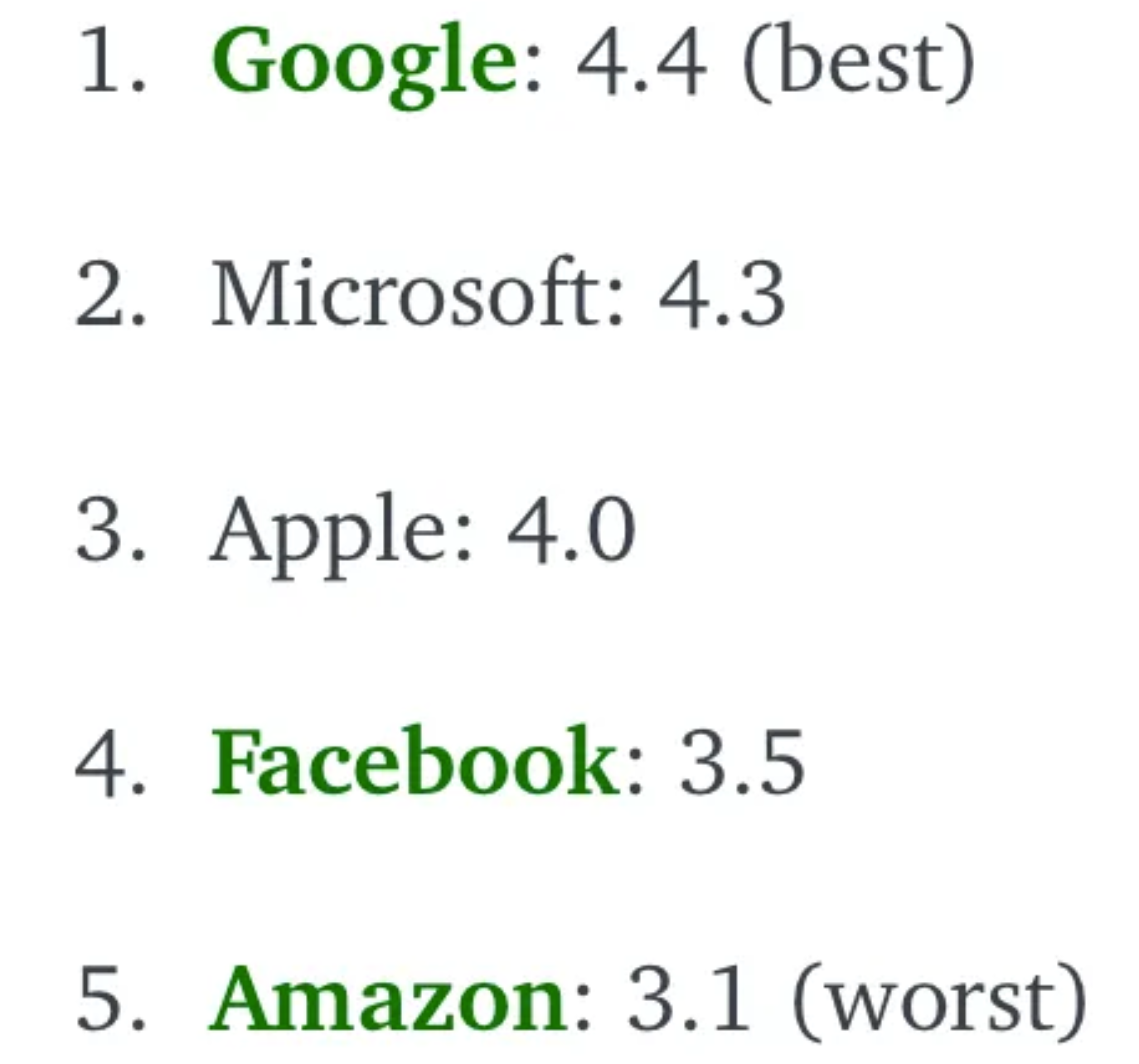Happy Birthday Amazon! 30 Years Young
Photo by Bryan Angelo on Unsplash
30 years. That isn’t a blink of an eye, and it’s hard to get your head around how Amazon has changed every developer’s lives in that time.
And I don’t just mean because we can get packs of ramen delivered to our door.
I mean they’ve normalized several working practices, and even damaged the “FAANG” brand across the work.
Work-life Imbalance
Unfortunately work-life balance for developers doesn’t really exist.
Sure, it’s tram dependent but AWS, Aurora, Dynamo, EC2 and IAM earned their reputation for burning out developers. 80 hour hardcore weeks are not unheard of, and on-call means you need to fix that issue no matter the time.
Those who leave reviews on Glassdoor rate Amazon’s work life balance as an almost unbelievably poor 3.1 (although overall they did award a slightly higher 3.9).
The only real surprise here is that there are worse companies than Amazon to work for as a software developer. Companies look at Amazon’s Glassdoor and learn the lesson: what incentive is there to improve?
Poor benefits
Amazon hauled their staff back into the office for three days a week. Sure, it isn’t working 12 hour shifts in unsafe conditions but it’s not good. It seems developers are happy if they are not expected to respond to emails on Sunday or after midnight.
You’ll need to give your all to the company, so no side projects allowed here.
“ATTENTION AND EFFORT. During employment, Employee will devote Employee’s entire productive time, ability, attention, and effort to furthering Amazon’s best interests and will not (without Amazon’s prior written consent) carry on any separate professional or other gainful employment, including self-employment and contract work."
Since Amazon has the powerful name and FAANG reputation they are able to keep attracting talent. No need to pay more than the absolute minimum if you’d like to keep the business running apparently, and this is a habit that has been bought into by other companies around the globe.
Awful values
Ideal Amazon employees are described as athletes with all the worrying implications those analogies bring. Endurance, performance and pushing limits have a place at work but probably not at the exact time you need to push out some code.
Amazon’s culture hasn’t changed. In 1997 Bezos wrote “You can work long, hard or smart, but at Amazon.com you can’t choose two out of three”, aptly explaining his attitude regarding developers who need time and space to improve its work.
Amazon have normalized this pressure on developers to deliver, no matter the cost.
A Sink or Swim Environment
Amazon have a reasonably low bar for new hires. If you can’t keep up with the pace you’ll be greated with a performance improvement plan before being shown the door. People will happily watch you fail so that they can succeed rather than handholding.
Amazon won’t support you. They don’t care about your wellbeing or long-term performance. Does this sound familiar to anyone working as a software engineer in 2024?
Short-Termism Writ Large
At Amazon famously a door became a desk.
This should be less a simple of an a flexible culture and in fact represents a company who do not put it’s efforts in the right place. A door simply doesn’t make a good desk.
As developers realize that, good software engineer or not, they tend to move on after 12–18 months.
The best developers move onto something better, the worst get fired leaving a mediocre rump.
As long as Amazon is shipping features the management seems happy with this arrangement. Again, sound familiar?
Conclusion
Amazon have been at this for 30 years. Sure, they are a successful company but should this come at the expense of it’s software developers?
Moreover, should the Amazon “markers of success” be imported into other companies, damaging the lives of hard working devs in the process?
I don’t think so.


